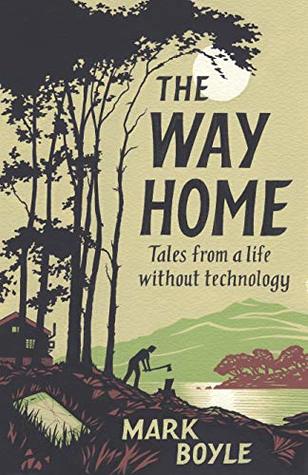More on this book
Community
Kindle Notes & Highlights
Six months later I read Robert Macfarlane’s Landmarks, his remarkable, place-particularising contribution to a ‘glossary of enchantment for the whole earth’. In it he revealed source of the words that had been deleted from the 2007 edition of the Oxford Junior Dictionary. They included: acorn, alder, ash, beech, bluebell, buttercup, catkin, conker, cowslip, cygnet, dandelion, fern, hazel, heather, heron, ivy, kingfisher, lark, mistletoe, nectar, newt, otter, pasture and willow. In their place, Oxford University Press had added: attachment, block-graph, blog, broadband, bullet-point, celebrity,
...more
It’s odd – when I was growing up in 1990s Ireland on a working-class council estate on the edgelands of a struggling town, no one ever asked me if I missed anything about the natural world. But the moment I choose bluebells over bullet-points I’ve found that everyone wants to know what I miss most about machines.
I’m trying to give up time. Obviously not seasonal time, the inescapable evolution-of-the-moment time; I mean clock-time. I appreciate that this may sound like a fanciful, impractical and odd thing to want to do, but it is at the heart of the way of life I want to lead. Reading Jay Griffiths’ deep exploration of time, Pip Pip, reinforced in my mind how recent the concept of clock-time is in human culture, and how essentially ideological and political it is. Clock-time is central to industry, mass production, specialised division of labour, economies of scale and standardisation; basically
...more
I found it had become boring and repetitive. As Thoreau wrote in the nineteenth century, long before Twitter and twenty-four-hour news, ‘If we read of one man robbed, or murdered, or killed by accident, or one house burned, or one vessel wrecked, or one steamboat blown up . . . we may never need read of another. One is enough.’ The news had become a bit like a Hollywood movie – same storyline, different actors.
Looking back, we had very little by way of money, or the kind of things it buys, yet I’ve no recollection of ever having felt a sense of lack. I suppose we were all in the same boat, and in the days before the proliferation of aspirational television programmes, it wasn’t so easy to feel the loss of a lifestyle neither you nor your ancestors had ever had.
Looking back at my early twenties, I can see that I drew my sense of self-respect, to a large extent, from how much money I earned. We all did. As I stand in the fishing tackle shop waiting to buy a spool of 12-pound monofilament line – synthetic, disposable, cheap industrial stuff – I realise that I draw my sense of self-respect these days from how little money I need.
The philosopher Alain de Botton has said that ‘True love is a lack of desire to check one’s smartphone in another’s presence.’
Lack of use is certainly one cause of its demise, but I’ve found that the first obstacle to good hand-writing is the expectation of producing forty words per minute, or the need to knock out a letter at email-speed. Once you slow down, good hand-writing becomes easier. Once you slow down, good anything becomes easier.
I find it strange that, in a world where free speech is so coveted, what I long for most is the freedom to not have to speak. Aldo Leopold summed up my morning’s sentiments when he said, ‘Of what avail are forty freedoms without a blank spot on the map.’
I have found that, when you peel off the plastic that industrial society vacuum-packs around you, what remains – your real needs – could not be simpler. Fresh air. Clean water. Real food. Companionship. Warmth, earned from wood chopped with your own hands using a convivial tool whose only input is care. There’s no extravagance, no clutter, no unnecessary complications. Nothing to buy, nothing to be. No frills, no bills. Only the raw ingredients of life, to be dealt with immediately and directly, with no middlemen to complicate and confuse the matter.


